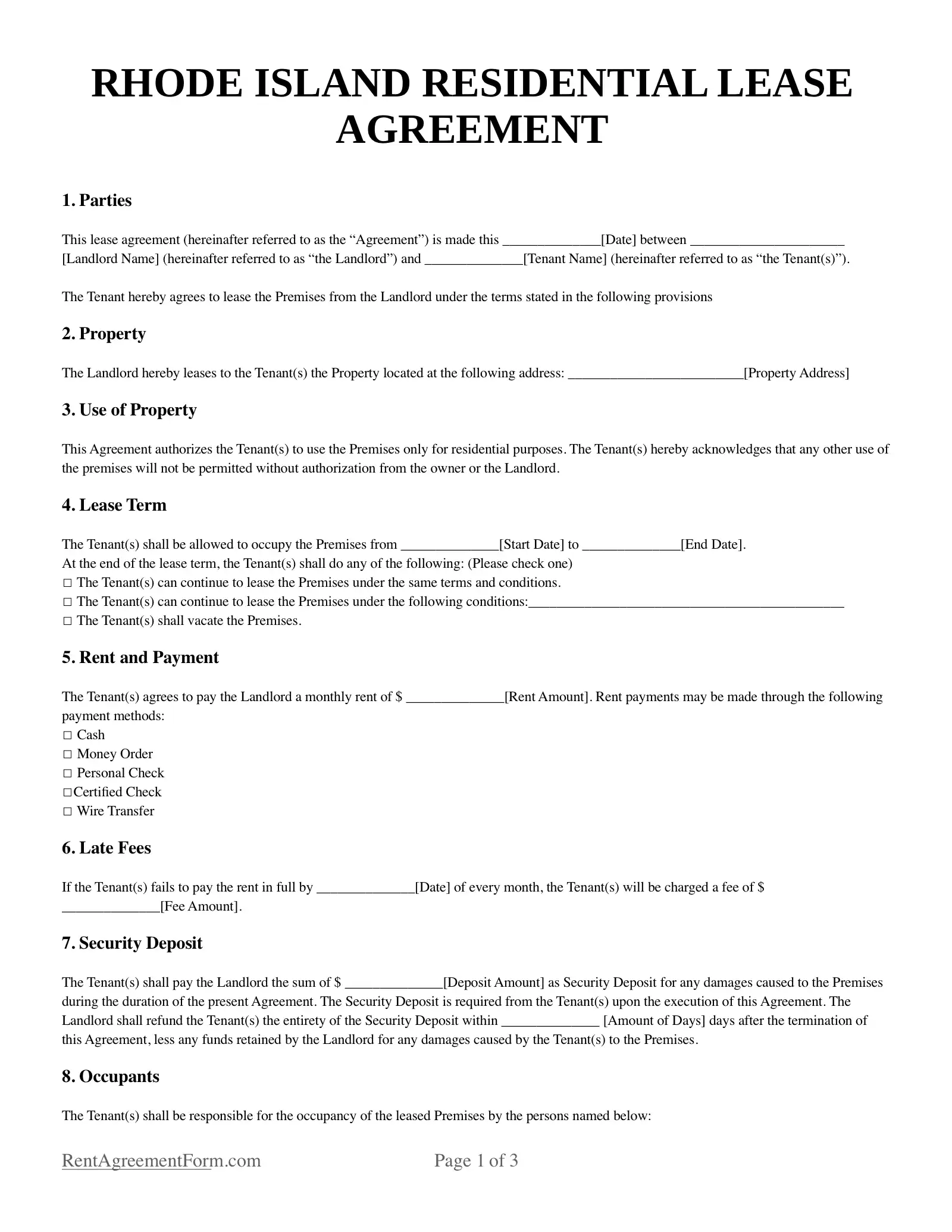Rhode Island Residential Lease Agreement Form
After meeting with realtors and looking at different real estate properties for rent, individuals interested in leasing must submit a rental application to prospective landlords. The application is a petition to be considered for tenancy. It allows landlords to verify one’s ability to pay rent by looking into various aspects such as the applicant’s credit score, income, and employment.
If approved, the landlord and tenant can proceed with a Rhode Island residential lease agreement form. A residential lease agreement form is a document that outlines the conditions of a real estate’s occupancy. Upon reviewing the terms, the landlord and tenant affix their signatures on the form to indicate their concurrence with it.
Tenants and landlords are subject to legal action if they violate any of the terms set forth. Furthermore, types of leasable real estate include but aren’t limited to rooms, apartments, and houses.

Required Disclosures in Rhode Island Residential Lease Agreements
- Landlord’s Duty To Notify Tenant of Violation – Before signing the Rhode Island residential lease agreement, a landlord must advise a prospective tenant of any minimum housing code violations regarding the property (RI Gen. Laws § 34-18-22).
- Notifications of Foreclosure and Authorized Property Managers – The name and number of the owner or authorized property manager must be disclosed to the tenant on or before the beginning of the tenancy. The landlord must also notify the tenant if the property being leased has delayed mortgage payments of at least 120 days (RI Gen. Laws § 34-18-20).
- Lead-Based Paint Disclosure – If the rental property was constructed prior to 1978 and uses lead-based paint, landlords must provide a corresponding disclosure to tenants (Lead-Based Paint Hazard Reduction Act of 1992 § 1018).
Rent Grace Period in Rhode Island
Unless otherwise specified in the lease, rent is payable on the first of every month. With a rent grace period of 15 days, the landlord can only provide an eviction notice, notice to pay or quit, or impose late fines if rent has been delayed for 15 days (RI Gen. Laws § 34-18-35(a)).
If the rent remains overdue after the grace period ends, the landlord can start the eviction process by serving the tenant with a 5-day notice to quit.
Rhode Island Security Deposits in Residential Lease Agreements
According to Rhode Island law, the landlord can only ask for a security deposit that is not greater than one month’s rent (RI Gen. Laws § 34-18-19).
When the lease ends, the landlord must return the entire security deposit minus any unpaid accrued rent or repairs (not due to simple wear and tear) within 20 days from the end of the lease date.